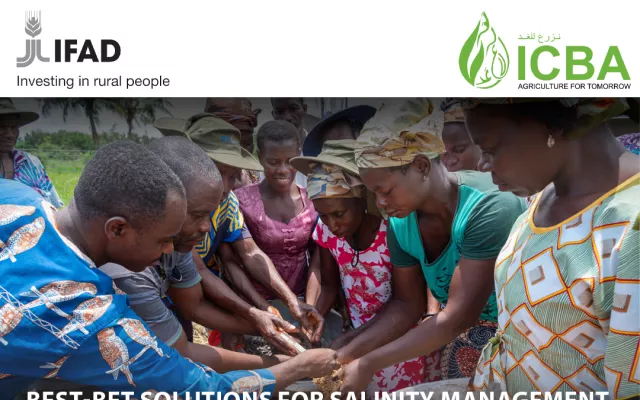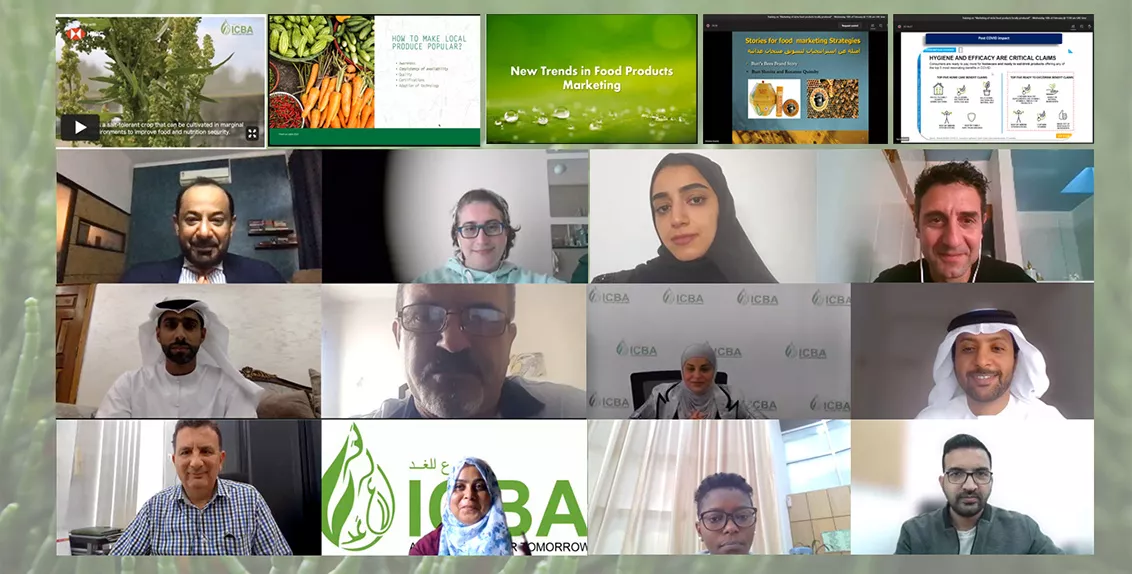ICBA launches new training series on sustainable agriculture in desert environments
15 February 2021
The International Center for Biosaline Agriculture (ICBA) has kicked off a new series of online technical training courses to develop the knowledge and skills of farming communities in Egypt and the UAE in sustainable agriculture in desert environments.
The training series is being held under the project titled “Food for the Future II - Building Sustainable Networks and Unleashing Entrepreneurial Potential of Farming Communities Living in Marginal Areas”.
Funded by the HSBC Bank, the project’s main goal is to equip farmers, agripreneurs, farm workers, and extension specialists with different tools and resources to enable them to sustainably grow food under marginal conditions.
The project focuses on three components: climate-smart agricultural entrepreneurship in Egypt; unconventional sustainable farming approaches for salt-affected regions of Egypt; and capacity development in integrated farming in the UAE.
The training series covers such topics as soil and water sampling; irrigation management; quinoa and Salicornia production; on-farm fertilizer, pesticide, and waste management; aquaculture; and marketing strategies in agriculture.
Originally planned to be held in person in the UAE, the training series were redesigned for online delivery mode, which makes it possible to reach a much larger audience from different countries.
Organized on 10 February 2021, the first course looked at how to market locally-produced niche food products such as quinoa. Attended by nine participants from the Abu Dhabi Agriculture and Food Safety Authority (ADAFSA), the course was delivered by scientists from ICBA, marketing specialists, and food industry experts.
During the course, participants learned about marketing principles, strategies, case studies, as well as new local and global marketing trends for food products, and the impact of the Covid-19 pandemic on food security.
In addition to technical presentations and discussions, the training series will also include pre- and post-assessment tests and informative video tutorials in three languages: Arabic, English, and Urdu. As part of the training process, each participant will have access to the video tutorials and can take the tests using a mobile application called Smart Labour.
Running until 12 April 2021, the training series is being organized in collaboration with Smart Labour, an educational platform.










